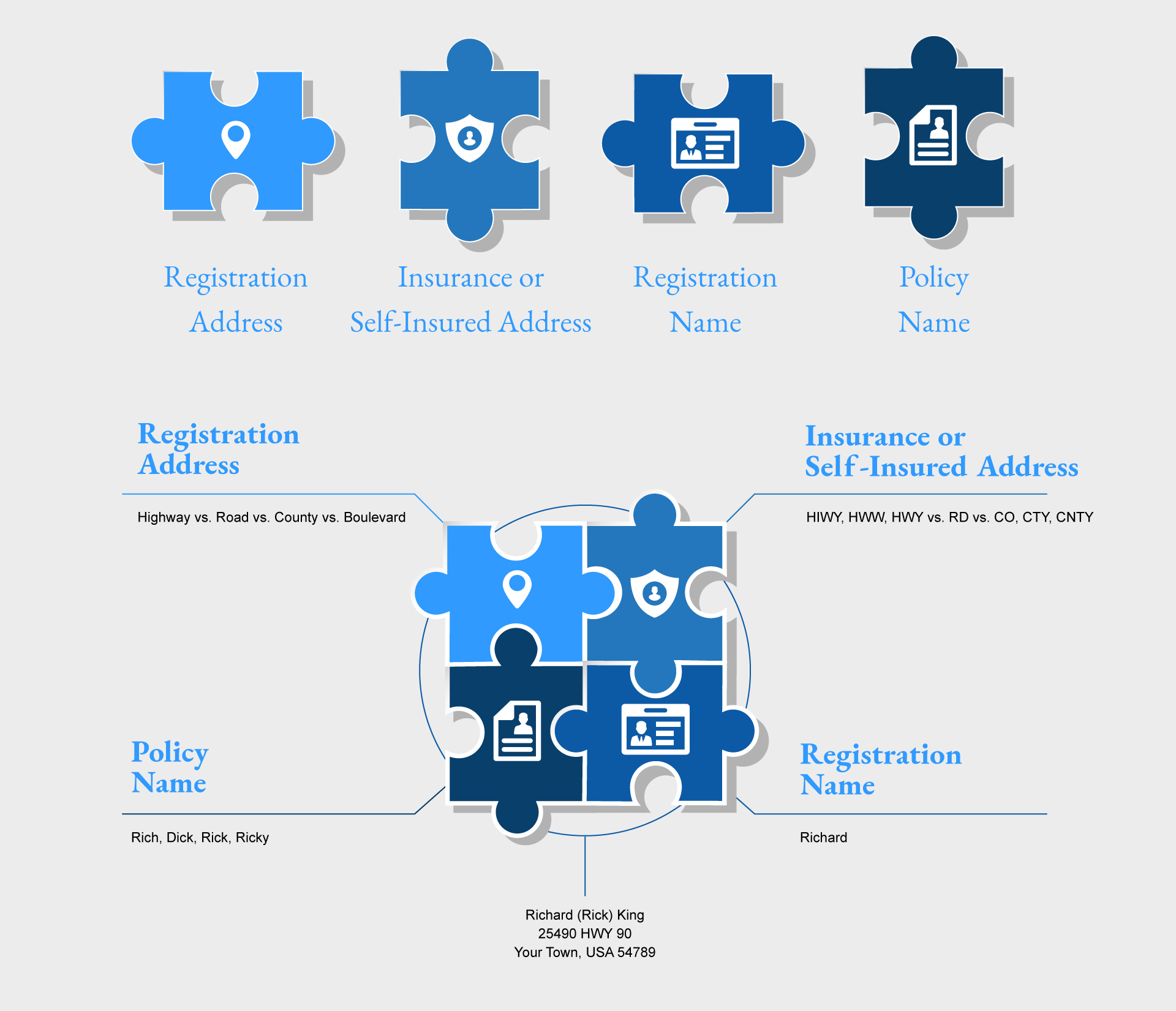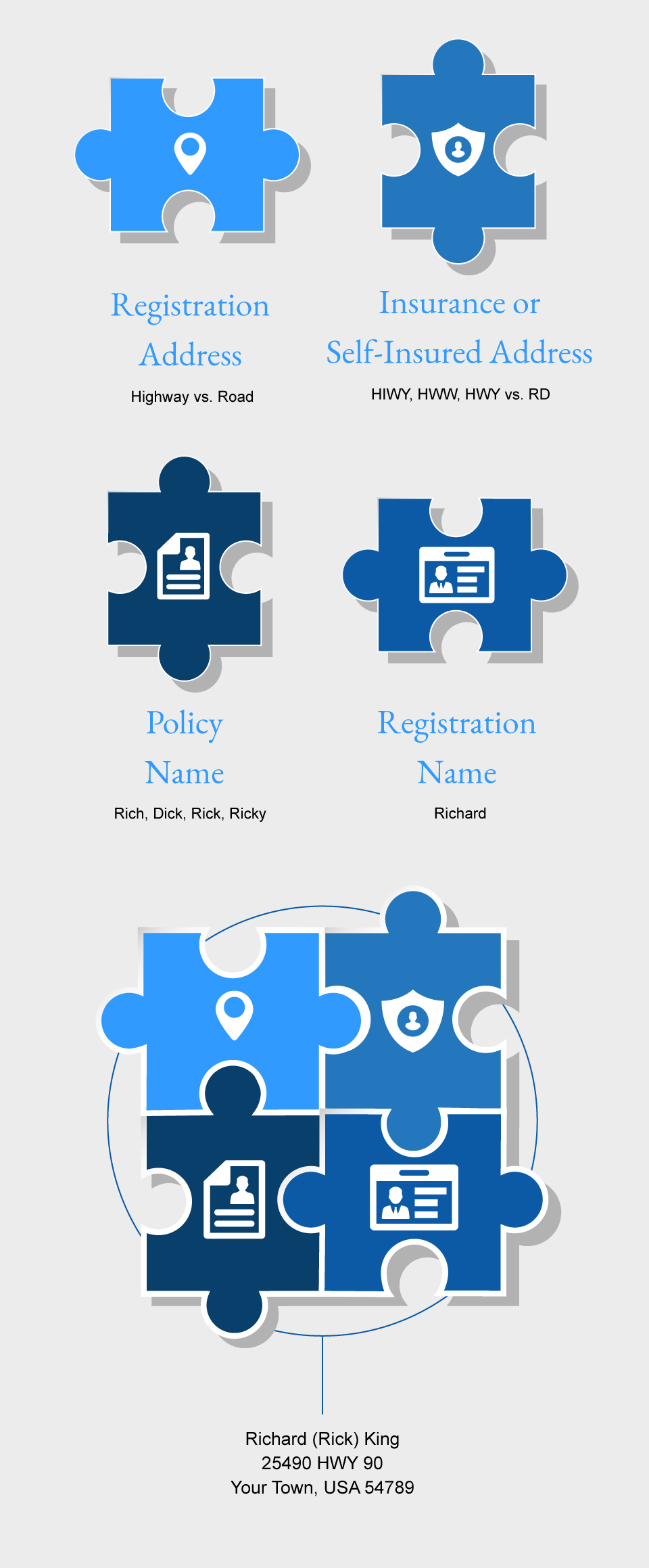Overview
Data matching, also known as record or data linkage, field matching, object identification or entity resolution is the process of comparing two or more different sets of data and identifying or matching them against one another. Data matching can also occur within one database. The goal is to identify data that refer to the same entity or element. Once matches are identified, data is delivered in a user-friendly and manageable format based upon individual agency processes.
How Does Data Matching Work?
The problem data matching tries to solve is knowing that two elements are, in fact, the same element. In the case of government agencies, these elements most often refer to people or common elements such as a vehicle identification number (VIN). There are many ways to perform data matching. Often, the process is based on a data matching algorithm. HDI Solutions, LLC utilizes proprietary matching algorithms that exceed 99.5 percent data matching accuracy rates, and our systems are utilized by large and small government agencies.

Benefits of Data Matching
When handling large amounts of data, data matching allows you to perform more precise and accurate searches and analyze data at a more advanced level. Data matching allows for data to be compared, patterns to be identified and irregularities to be flagged. Data matching helps increase accuracy, improve efficiency and assists with monitoring compliance within a wide range of contexts. HDI’s matching algorithms utilize both exact and fuzzy matching protocols and provide the best opportunity to correctly identify matching records.
What is Exact Matching?
The exact matching process is just that, identifying data that has exact character matches (both letters and numbers) to ultimately result in a match. If your data is not the same word or numerical sequence, the exact matching process will not identify it. Exact matching goes field by field to examine every character.
What is Fuzzy Matching?
Fuzzy matching is a process that allows a system to determine data matching with varying degrees of certainty (rather than simply determining whether data elements exactly match or not). This type of matching can be used for address matching and address standardization, enabling addresses to be matched with high certainty even with minor derivations in the data. The resulting matches can then be used to update databases. Fuzzy matching logic identifies commonly replaced letters, numbers or symbols (i.e., 1 or I, 0 or O) and common words or names that may have variants (i.e., Sarah or Sara, Jon or Jonathan, Avenue or Ave). This method is advanced and able to recognize individual records that have a high likelihood of being correct.
How Can Data Matching Help My Agency?
If your agency has multiple data sets, data matching can help achieve your goals. Powered by HDI’s proprietary data matching algorithms, our systems provide accurate matching of disparate data sets. The human element of data entry is accounted and compensated for with entry errors and logic being ultimately eliminated through our proprietary matching algorithms.
For the State of Mississippi, HDI uses its data matching algorithms to support the state’s insurance verification program. HDI’s system accepts motor vehicle registration data and insurance company book of business data for matching prior to completing insurance verification web service queries. Through this front-end data matching, HDI is able to match registration records to insurance policies with greater than 99.5 percent accuracy. HDI accepts data from nearly 160 insurers and matches it against Mississippi’s 7.1 million registered vehicles. For insurance verification, this data matching allows HDI to transmit web services queries directly to insurance companies for more efficient insurance verification responses.
How Fuzzy Matching Works
Data matching determining varying degrees of certainty


HDI Expertise in Use
Four decades of experience, countless clients and billions of data elements later, HDI delivers custom software solutions and securities that power many of the country’s leading government agencies. See who entrusts HDI to develop their systems and how they use our on-going support and management services to meet the needs of the citizenry they serve.
Agencies That Benefit From Data Matching and Analytics
- Mississippi Department of Public Safety
Agencies That Benefit From Data Matching and Analytics
- Texas Department of Transportation
Agencies That Benefit From Data Matching and Analytics
- Alabama Department of Public Health
Agencies That Benefit From Data Matching and Analytics
- Alabama Office of State Treasurer



